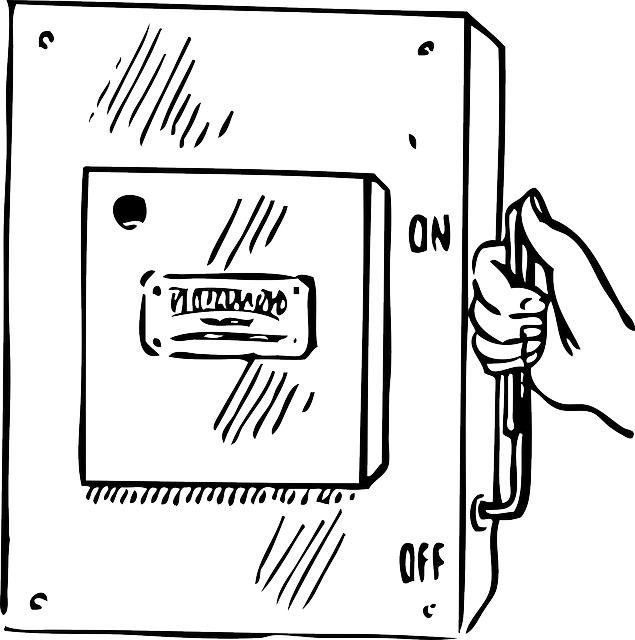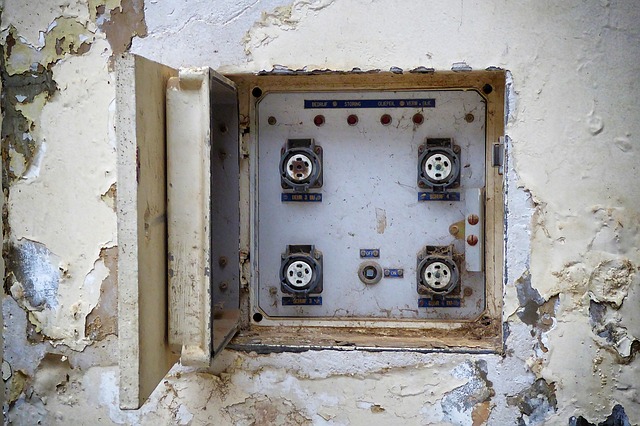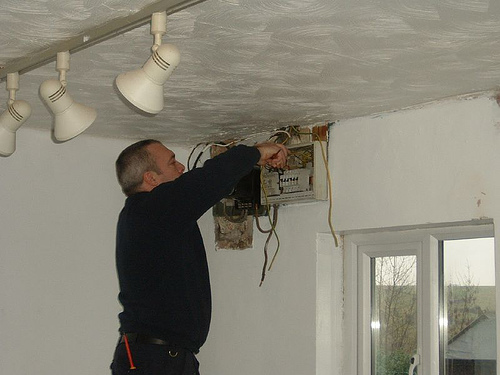Quick Guide: Rewire your Home and Upgrade Your Fusebox

The benefits and considerations of installing LED down lights
April 13, 2015
Landlords and their Electric Responsibilities
May 6, 2015Electrics are serious business. Faulty wiring and old equipment can cause shocks and eventually be a real fire hazard – potentially fatal at their most extreme.

With the health and safety of homeowners paramount, legal regulations are in place as to the jobs any DIY’er can undertake and those which must be carried out by a fully trained and registered electrician. These requirements are known as ‘Part P’ in the Building Regulation rules and may apply to any time you need to make alterations or additions to your home wiring.
When you look at your wiring and fuse box, it’s important to know what may be a strong – or perhaps definite indication that you need to talk to the experts about a rewire or a fuse box upgrade. This guide will take you through what you need to know and when you legally have to call in registered electricians.
When do I need to rewire my home?
Any property which is over 25 years old could well need some work carrying out on the electrics. In an older home, if maintenance work hasn’t been undertaken over the last 25-30 years, then it’s also a good idea to find out what’s happening with the wiring. It’s also a useful exercise to bring it up to current safety standards.
If you’re planning to renovate a property, assessing the electrics is a job to carry out early in the project. Rewiring and fuse box upgrades can be disruptive as the walls and ceilings can be affected, so it’s something you need to put at the top of the list and certainly complete before any re-plastering or decorating work is set to take place.
Major renovation work which falls under Building Regulations could well mean that you’ll need to rewire at least part of the property and quite possibly all of it. This could be when you’re planning an extension or converting your attic and the work falls under Part P of building legislation. If you think this may be the case, check it out with your local authority planning and building control departments before starting work or talk to an electrician. Both can advise on the work required.
If the property has different styles of sockets and switches dotted around the rooms, this is a sure sign that a partial rewire has taken place in the past. It’s even more a tell-tale sign if you can see wiring that is surface mounted which runs along the skirting boards and then travels up the walls.
The colour of the wiring is also a good indication. Modern wiring has a PVCu covering which will be grey or white. If the wire insulation is made from rubber or lead, a rewire will be needed.
Very old properties which have stood empty for a long time may have old round pin sockets and circular light switches. This scenario means you definitely need to look at a rewiring project.
When should I look to upgrade my fuse box?
The outward appearance of a fuse box is the best place to start. Older style ones have large fuses which are white and the box itself will look very dated.
A fuse box should have the following:
– Main switch; to enable you to turn the power off to the property
– Residual Current Devices (RCD); switches which trip out the power in a dangerous situation
– Circuit breakers; protection if the fuse box detects a fault. If one trips, ensure the fault is fixed before the power is switched back on
If your fuse box doesn’t have all of these elements, you more than likely need an upgrade. If the back of the fuse box is made from wood or the switches are made from cast iron, this is a situation where you need an urgent upgrade.
The upgrade of a fuse box is a job which legally must be carried out by a qualified electrician as the testing results of the new box and the certificate of conformity issued will be logged with your local authority Building Control department. You’ll need the certificate in the future when you want to sell the property.
Before a fuse box is replaced, pre-inspection will look to see there is the provision of adequate earthing of the gas and water before work starts.
When should I call in the professionals?
There are two reasons to call in the professionals; if you don’t have the knowledge to carry out the job, or it’s a legal requirement that a registered electrician must do the work for you.
No electrical job should ever be attempted if you aren’t sure about any element of the work. You have to know what you’re doing as it’s an area of the home which could cause serious injury if not carried out correctly.
If it’s a major overhaul of the wiring or is related to a new  build such as the building of an extension, you need to talk to an electrician. They will be able to advise on what is needed to join the wiring of the current property to the new section and if there is a need for a full rewire.
build such as the building of an extension, you need to talk to an electrician. They will be able to advise on what is needed to join the wiring of the current property to the new section and if there is a need for a full rewire.
When contacting a company, always check out that they have Part P certification; if not, then the work won’t be recognised by the local authority and won’t come with the required certificate of conformity where required.
Any electrical job – however minor, needs to be completed by capable hands; the safety of all those in the home is paramount and it’s never a project for the amateur DIY’er.

